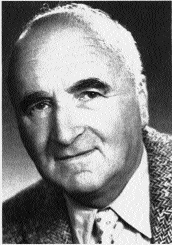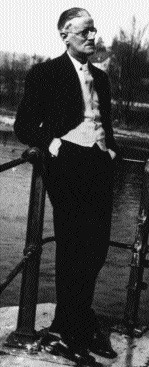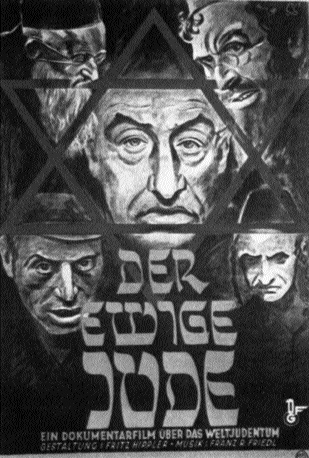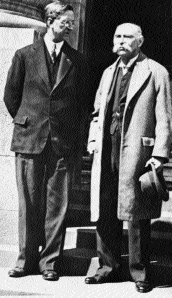Professor Pokorny of Vienna
Published in 20th-century / Contemporary History, Features, Gaelic Ireland, Issue 1 (Spring 2000), Volume 8Julius Pokorny was a German Celtic scholar who supported Irish nationalism and the Gaelic League. He corresponded with Douglas Hyde, met Éamon de Valera and is mentioned by name in Ulysses. And he was a German nationalist who lost his chair in Berlin because of Jewish ancestry, after which an Irish visa saved his life.

Julius Pokorny (1887-1970)
When the Gaelic League was founded in 1893 it was just one of a number of cultural revivalist organisations across Europe that had strongly political overtones. The Czechs, the Hungarians, the Norwegians and other nationalities, whose languages and cultures had been subjected for centuries to greater or lesser repression by dominant neighbours, all set about reasserting their cultural rights and linguistic heritage in this period. Simultaneously, academic research was showing that most of the languages across Europe were more closely related to each other than had previously been thought. In 1810 the Dane Conrad Malte Brun had coined the term ‘Indo-Germanic’ (or ‘Indo-European’) to describe groups of related languages in Europe and beyond, and throughout the nineteenth century it was progressively shown that languages as diverse as Irish, French, German and Russian were probably derived from a common ancestor. An awareness of this common ancestry did not prevent the rise of new nationalisms, though it did reinforce such concepts as ‘pan-Slavism’, ‘pan-Celticism’, and the belief in a common Germanic/Nordic heritage for Germans and Scandinavians. Celtic philology, defined broadly as the study of the Celtic languages and cultures, is just one of the many branches of Indo-European philology. German scholars were at the forefront of much of the research in this field, and some of them took a special interest in the Celtic countries.
One such was Julius Pokorny. Born in Prague in 1887, he was taken to Vienna as a child and attended a Benedictine boarding school near Linz in Upper Austria before going on to study at Vienna University in 1905. There he studied linguistics and law and developed a special interest in Ireland. He took a doctorate in law in 1910 and a PhD in 1911 with a treatise on an Old Irish text. He published continuously on philology, and also on Irish history, from 1910 onwards.
Pogorny in Ireland
Pokorny first came to Ireland in 1908, studying modern Irish at the Connacht Irish College in Tourmakeady, County Mayo under Mícheál Breathnach (thus becoming the first German Celticist to learn Modern Irish) and also Old Irish texts under Osborn Bergin. Having become friendly with Eoin Mac Néill he was invited to address the Gaelic League on 27 July 1910 in the Mansion House, Dublin. It was just one of a number of fiery speeches in which he encouraged Irish people both to revive the Irish language and to shake off the chains of Westminster.
Very much caught up in the nationalist spirit of the times, Pokorny was, like many Austrians right up until 1945, a German nationalist. Yet this nationalism was of a high-minded intellectual nature that did not preclude admiration for other nations. He spoke in the Mansion House of the political and linguistic revivals in Hungary and Bohemia and said that as a German, though he could not love these peoples, he certainly admired them. He admired the Czechs, for example, because as he saw it they had the will and the spirit to put into practice the ideals which he also believed in for his beloved Germany (which had only relatively recently been united for the first time in its history). These were essentially cultural and political strength through linguistic and cultural unity, and it was this that he encouraged the Irish to try to achieve also.
Proto-Nazi agenda?
Joachim Lerchenmueller, in his study of Celtic Studies in Germany 1900-1945, asserts that Pokorny was treating Celtic philology as a ‘science with a cultural-political-völkisch mission’, i.e. a racist, indeed proto-Nazi agenda. Yet Lerchenmueller’s use of the Nazi word for nationalist (völkisch) is gratuitous and completely inflates the dimensions of nationalism across Europe around 1910. Even when Europe as a whole went to war in 1914, none of the nations occupied had to face Nazi-style attempts at racial persecution and extermination, nor did any German philologists call for such actions. Claiming that Pokorny came to Dublin in 1910 to espouse what amounts to thinly disguised Nazi ideology even before Nazism had been invented is arrant nonsense.
Philology was a relatively new, developing science in the late nineteenth and early twentieth centuries that rapidly gained popularity in academic circles across Europe. Scholars tried to reconstruct the common language from which most of the modern languages from Ireland across to northern India are descended. The research was often controversial, and Pokorny’s attempts to reconstruct earlier languages met with some opposition, though his views were accepted by many at the time. His appointment to the chair in Celtic Philology at Berlin University in 1920, when he became the third holder of a post that had been established in 1901, was recognition of his position as a leading authority in the field. The creation of the chair was itself testament to the growing interest in the field.
Given the domination of European political discourse by nationalism at the time, research into philology and linguistics was inevitably linked to concepts of ethnicity and nationality. It is impossible to establish where language ended and ethnicity began, or indeed to separate either from the political movements of the period. The Czech movement that Pokorny so admired, for example, might be seen as chauvinistic for wanting to regain linguistic ground that had been lost over centuries of German cultural domination. However, this cultural emancipation was seen by many at the time as a necessary element of personal emancipation and the reclaiming of not just cultural and national, but also individual identity. Many Czechs would argue that the only effective weapon (short of terror) against German chauvinism in Bohemia was Czech chauvinism. Certainly, the Czech movement succeeded, in the space of fifty years (1850-1900), in turning Prague from a German-speaking city into a Czech-speaking one, all the while under Austrian rule. In 1910 Pokorny was encouraging the Irish to begin a similar process in Dublin.
Mentioned in Ulysses
Pokorny served in the Austrian Army in World War I, before moving to Berlin, and it is clear that his fame was growing. In 1922 his name cropped up in no less a place than James Joyce’s new novel, Ulysses, where the idea that the ancient Celts had no concept of hell is attributed to him. The scene is curiously anachronistic, because on 16 June 1904, the day on which Ulysses is set, Pokorny was a seventeen-year-old schoolboy in Austria whose name was unknown in Dublin. Also, it appears that Pokorny did not publish the idea attributed to him in Ulysses until 1923, a year after the publication of the novel. It has not yet been shown how exactly Joyce became familiar with Pokorny’s ideas, though one theory is that he may have attended a Dublin lecture given by Pokorny around 1912. Nevertheless, the scene from the novel is evidence that Pokorny’s name was known in a wider context than just philology around 1920.
In 1921 Pokorny also became co-editor of the Zeitschrift für celtische Philologie [Journal of Celtic Philology], a journal that had been established in 1897 and which still exists today as one of the leading Celtic Studies journals in the world. He continued teaching in Berlin and in 1925 the National University of Ireland awarded him an honorary doctorate.

James Joyce-the idea that the ancient Celts had no concept of hell is attributed to Pogorny in Ulysses, despite the fact that on 16 June 1904, the day on which Ulysses is set, Pokorny was an unknown seventeen-year-old Austrian schoolboy!
Nineteen-thirty-three was to mark an increase in his fame in Ireland and a contrasting change in his fortunes in Germany. That year an English translation of his book, A History of Ireland, was published in Dublin and Cork. It had been first published in Germany in 1916 as the first in a series of political/geographical/historical studies of various countries around the world (including Sweden, Poland, China, Canada and others). Like most of the volumes in the series, it was written by a specialist who was very sympathetic to the nationalist movement in the country he wrote about, as long as this did not conflict with the German national interest. It is an extremely one-sided history of Ireland that strongly echoes the tone of his 1910 speech in Dublin. Though the book had been panned by most critics, including even the German military censors in World War I, its publication in Ireland may be seen as a crowning glory for Pokorny.
Yet this was not the extent of his writings on Irish themes. He had published a concise Old Irish grammar in 1914, translations of Pearse and others into German in 1922, and translations of Old Irish poetry in 1923. He had also edited a comparative dictionary of Indo-European languages (1927-32) and went on to publish translations of Old Irish poetry in Berne in 1944, and a massive two-volume Indo-European Etymological Dictionary (1959-69), as well as writing on Tokharian and Illyrian culture. Some of his books were translated not only into English but also, in 1952, into Castilian and, unusually for Francoist Spain, into Galician, too. His work on Ireland should thus be seen in the context of a wider interest in philology and ethnicity, as should most research on linguistics and ethnology at that time. Though Pokorny’s research led to identification with Irish nationalism, this was not a narrow, exclusionist ideology that he espoused but something that he saw as the appropriate ideology for all countries.
Nazis in power
He was, however, a German nationalist first and foremost, and it came as something of a shock when he was suspended from his post in April 1933 in the wake of the passing of a Nazi law which removed political opponents and Jews from public service. In a letter to Richard Best, the Deputy Director of the National Library in Dublin, Pokorny recorded his astonishment at the discovery that his grandparents had been Jewish. He also wrote to his friend Douglas Hyde asking him to persuade the Irish government to intervene. By December 1933 Pokorny had been reinstated, and he later claimed that the Irish government’s intervention had helped save him, though this may be an overstatement. Pokorny also claimed in a letter to Best that he had been reinstated ‘owing to service done to German science’, but it is likely that he was reinstated in fact due to his Austrian military service. Hindenburg, the old field marshal who remained President of Germany until his death in 1934, had insisted on an exemption clause for all those who had fought for Germany and its allies in World War I.
By 1935, however, with the passing of the Nuremberg race laws, Pokorny’s position was lost, despite his desperate attempts to save his post. This included travelling to Vienna to discover the full truth of his ancestry. Curiously, in view of his earlier admissions to Best, he now expressed surprise in letters to the rector of Berlin University at the extent of his Jewish ancestry: it seemed that all four of his grandparents had been Jewish. Pokorny asserted that he sympathised with the aims of the Nazi government in Germany, though he had never been a member of the Nazi Party, and that he felt no affiliation whatsoever with Jews. The impression created by the letters is of a man fighting to retain his job, and who is prepared to make any political compromises necessary. Pokorny was a German nationalist who had little difficulty with Nazism once that movement had assumed power. But that was true of most conservatives in Germany at that time, and even many liberals, socialists and communists came to support the Nazis after 1933. Despite his best efforts, Pokorny was pensioned off in 1936.
The next seven years are the most curious period in Pokorny’s life, and it may never be possible fully to reconstruct events. Though he lost his chair, he was still, unusually for someone the Nazis had deemed Jewish, allowed to travel to international conferences in Blackpool and Copenhagen, to undertake research trips to Czechoslovakia and, as late as 1939, to go to Switzerland on holiday. In addition, he was allowed to publish a book on Celts and Illyrians in 1938 and remained as co-editor of the Zeitschrift until 1939. Given the racial nature of the research in which he was engaged, it seems astonishing that Pokorny was allowed to continue publishing. The files do not shed any light on why this should be so. In 1939, however, he was finally removed from academic life, though he continued to live at his flat in the Berlin district of Halensee (Wilmersdorf). Curiously, however, he is not listed in the directory of Jewish residents of Wilmersdorf during the war.
The Irish authorities were aware of the perilous nature of his position in Berlin, and de Valera ordered the Irish ambassador, Charles Bewley, to intervene on his behalf, though it is unlikely, given Bewley’s well-documented Nazi sympathies, that he made more than a token gesture. However, Pokorny had friends in high places. In a hand-written letter from Frenchpark dated 15 June 1938, Douglas Hyde promised ‘My dear Pokorny’ that once he had been inaugurated as President he would speak to the foreign minister (de Valera) and ‘do all I can’ to help.

Poster for The Eternal Jew: a documentary film on world Jewry, a typical example of Nazi anti-semitic propaganda-Pokorny’s assertion that he sympathised with the aims of the Nazi government in spite of his Jewish background was to no avail: he was pensioned off in 1936.
Bewley was replaced by Con Cremin in 1939, and on 2 April 1940 the Irish Chargé d’Affaires in Berlin, William Warnock, wrote to Pokorny informing him that an Irish visa had been approved and could be obtained by calling at the embassy at any time.
Pokorny’s escape
Thereafter the embassy appears to have lost sight of Pokorny, but he was able to make a remarkable escape. When Cremin telegraphed Dublin in September 1943 to say that Pokorny was still in Berlin, he had, in fact, been out of Berlin since April and in Switzerland since the end of July. While attending his father’s funeral in Austria in April 1943 Pokorny was tipped off that the Gestapo had called at his flat in Berlin. He hid in Vienna for two months and then travelled to Freiburg in south-west Germany, where, by his own account, he hid for another six weeks. He crossed the Swiss border in broad daylight on 27 July and was interned, but, on account of his age, allowed to live privately rather than in a camp. The Swiss reports express the opinion that he could not have sneaked across the border; they felt that he had presented his German passport, which contained an Irish visa valid until February 1944, and left legally. It is almost certain that someone in the Nazi hierarchy held a protective hand over Pokorny, possibly because of his German nationalist sympathies. As yet, however, there is no hard evidence as to who this might have been. In any case, whoever it may have been was not powerful enough to prevent the Gestapo calling in 1943.
The Swiss authorities allowed Pokorny into the country because he had an entry visa for Ireland. The possession of a visa for another country was the refugee’s only chance of being exempted from the strict policy of turning away refugees. On arrival in Switzerland Pokorny expressed a desire to travel on to Ireland and was initially supported financially by a friend, Professor Otto Funke in Berne.
It was largely the interventions of the universities in Zurich and Berne that ensured that he was given part-time lectureships in Celtic philology as early as 1944, thus enabling him to stay in the country. These interventions derived from two main motives. Firstly, Pokorny’s earlier status as professor in Berlin made him one of the top-ranking Celticists in the world at the time, so that employing him was seen as a coup for both universities. Secondly, one of the unifying factors in Swiss national identity, despite the existence of four national languages, is considered to be the Celtic substratum, which some Swiss regard as accounting for up to seventy per cent of the population. (Switzerland’s official name in Latin, Confederatio Helvetica, is derived from a Celtic tribe, the Helvetii). According to this theory, German, French, Italian and Romantsch were largely the languages of ruling elites that were superimposed on the native Celts. With his knowledge of Celtic Studies, Pokorny was immediately able to offer expertise that no Swiss possessed. The courses he taught in this period included, amongst others, ‘an introduction to Celtic philology’ and ‘Celtic names in Caesar and in Swiss place and river names’. He settled in Zurich in 1944, three years after Joyce’s death there.
In 1946 the Soviet authorities in Berlin tried to locate Pokorny to offer him his chair back. Despite this, he chose to stay in Switzerland, where he taught in Berne until 1948 and in Zurich until 1959. He held German and Austrian passports, but the Austrians withdrew their passport in 1952 because he had supposedly left the country illegally when he went to Berlin in 1920. After a period of financial uncertainty he was awarded a pension by the German government in 1953. In 1955 he was given an honorary chair at the University of Munich and taught there part-time in the late 1950s. He was also awarded honorary doctorates by the University of Wales in 1966 and the University of Edinburgh in 1967.
In 1951, after meeting de Valera, who was on a visit to Switzerland, Pokorny succeeded in obtaining financial assistance from the Department of External Affairs in Dublin to re-establish the Zeitschrift, which had become defunct in 1945.

í‰amon de Valera and Douglas Hyde-in a hand-written letter from Frenchpark dated 15 June 1938, Douglas Hyde promised ‘My dear Pokorny’ that once inaugurated as President, he would speak to de Valera and ‘do all I can’ to help. (Keystone Press, 5 May 1938)
On taking over the editorship from Pokorny in 1939 Ludwig Mühlhausen had renamed it Zeitschrift für celtische Philologie und Volksforschung [‘Volk’ research], thus using a term that made much more explicit the political aims of the journal under the Nazis. Pokorny reverted to the original title. His second period as editor only ended with his death in Zurich in April 1970, and the editorship was assumed by one of his most important pupils, Heinrich Wagner, a Swiss who was then Professor of Celtic at Queen’s University, Belfast.
Conclusion
Pokorny’s life and work were affected by a number of the major issues surrounding twentieth-century Ireland. He was a German and Irish nationalist and also one of the foremost Celtic scholars of the century. He was also a victim of racial persecution on whose behalf the Irish government attempted to intervene, and whose escape from Nazi Germany is not a little enigmatic. Yet his beliefs and his works must be seen primarily in the context of early twentieth-century Germany. He worked on philology and ethnology partly for national reasons, and partly because this relatively new science, which had not yet confirmed all of today’s certainties about Indo-European linguistic ties, was one that fascinated many German scholars at the time. The irony of his falling victim to the extreme consequences of some of this type of research is not exceptional: many German Jews, or Germans the Nazis deemed to be Jews, were extremely assimilationist and patriotic, and often continued to be so even after their attempted exclusion by the Nazis from the German ‘nation’. Pokorny’s nationalist beliefs should be seen in this light and in the context of his intellectual pan-nationalism. And while his linguistic theories, especially some of his reconstructions of vocabulary items in earlier languages, have to some extent been superseded, he nevertheless was a formative influence on Celtic and Indo-European Studies in the twentiethth century.
Pól Ó Dochartaigh lectures in German at the School of Languages and Literature, University of Ulster, Coleraine.
Further reading:
D. Keogh, Jews in Twentieth-Century Ireland (Cork 1998).
J. Lerchenmueller, Keltischer Sprengstoff (Tübingen 1997).
Seán Ó Lúing, Kuno Meyer 1858-1919 (Dublin 1991)
J. Pokorny, A History of Ireland (Dublin and Cork 1933)
















